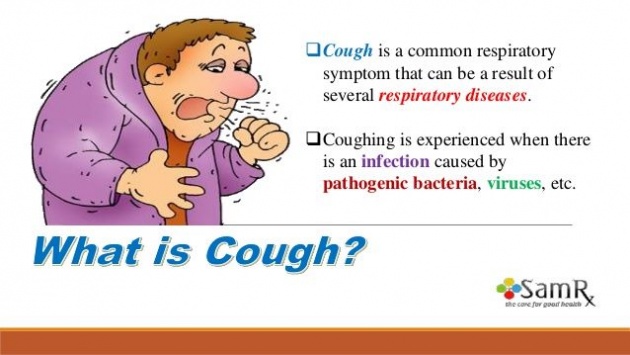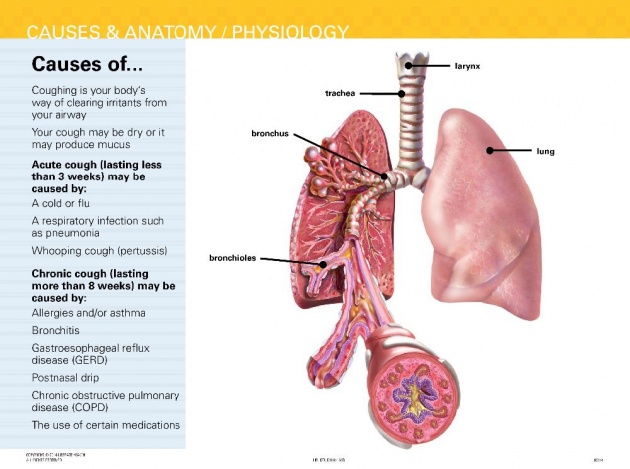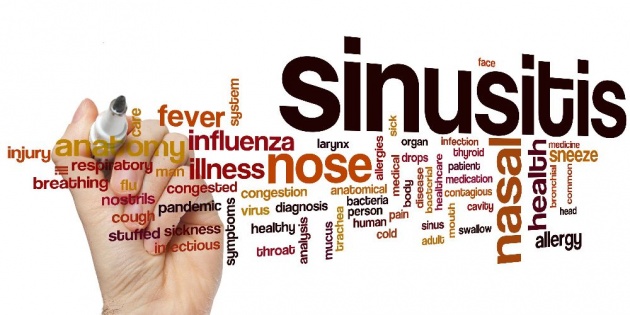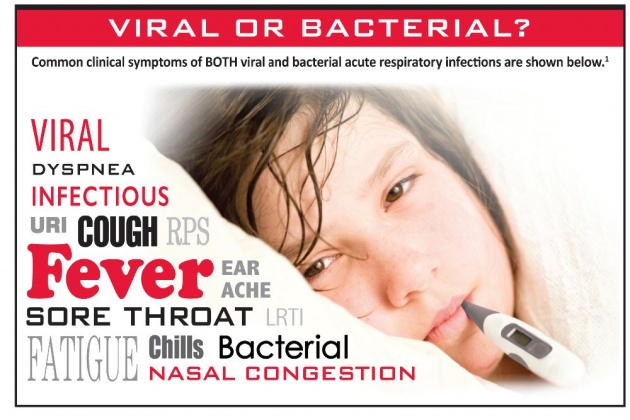
Photo Credit: www.homenaturalcures.com
I’ve been suffering from cough for several days now so I am thinking why not share things about cough and all the things associated to it including home remedies and medications so everyone would be informed and will know what to do if ever they will catch a cough.
This article aims to provide answers to questions like does cough contagious? Is it normal to get sick or have fever when you have cough? How long does cough stay before it will be gone forever? And a lot more questions.
Video Credit: Ohio State Wexner Medical Center via www.youtube.com
Cough Definition and Facts
A cough is an action the body takes to get rid of substances that are irritating to the air passages, which carry the air a person breathes in from the nose and mouth to the lungs. - emedicinehealth.com

Photo Credit: https://www.slideshare.net
A cough is a sudden and often repetitively occurring, protective reflex, which helps to clear the large breathing passages from fluids, irritants, foreign particles and microbes. The cough reflex consists of three phases: an inhalation, a forced exhalation against a closed glottis, and a violent release of air from the lungs following opening of the glottis, usually accompanied by a distinctive sound.[1] Coughing is either voluntary or involuntary. - Wikipedia
It usually occurs when the cells along the air passages get irritated, in effect air in the lungs is forced out under high pressure. Usually the body may cough on its own which they call involuntary process and in some cases a voluntary process meaning a person can choose to cough.
Which among the two did you experienced in the past? I think mine is involuntary I can’t control it which make it embarrassing especially when I am with a crowd and in public places.

Photo Credit: http://liberatehealth.us
What Causes Cough?
Acute coughs can be classified into two main type, first is infectious which include upper respiratory infections which is associated to common colds, sinus infections, pneumonia, acute bronchitis, and whooping cough, the kind of cough which I think I have at present and the second type is noninfectious such as chronic bronchitis, asthma, emphysema and environmental allergies.
Signs and Symptoms That Point To An Infection
- Fever
- Chills
- Body aches
- Sore throat
- Nausea
- Vomiting
- Headache,
- Sinus pressure
- Runny nose
- Night sweats

Photo Credit: https://healingthebody.ca
Signs And Symptoms That Point To A Noninfectious Cause
- Coughs with wheezing
- Coughs that regularly worsen when an individual goes to certain locations
- Coughs that improve with inhalers or allergy medications
Video Credit: The Doctors via www.youtube.com
What Are the Signs and Symptoms of Acute and Chronic Cough?
To learn more about the cause of a cough we need to be observant with the signs and symptoms. We also need to determine whether the cough is acute or chronic. But how do we know if our cough is acute or chronic?
Acute versus Chronic
Experts say that a good way to assess the gravity of a cough is to figure out how long you’ve had it. It is considered acute when it lasts less than three weeks and will be considered chronic when it lasts more than eight weeks. Not just sure if this assessment is when there is or no medication at all.
This is very important for the doctor to know too, as far as I remember every time I got cough the doctor will always ask me how long does it last, and honestly since as per my experience my cough really last long I find it hard to remember when it was started so just like earlier when I was asked by the doctor I just told him I am not sure but I think it’s more than 3 weeks already.

Photo Credit: http://www.earnoseandthroatct.com
ACUTE COUGH
Acute cough is common, and most of the times self-care may be enough to get rid of it. Taking more fluids is one good remedy.
However there are instances wherein acute cough could be more serious and that there’s a need to really consult a doctor.
See the following cases below which may be a sign of severe flu, pneumonia, tuberculosis or other respiratory diseases:
- If you have cough plus fever
- If you experience chest pain
- If there’s shortness of breath
- If you see green or blood-tinged phlegm
 Photo Credit: http://www.njherald.com
Photo Credit: http://www.njherald.com
So if you see those signs, you better seek medical attention to avoid any further complications.
CHRONIC COUGH
On the other hand, Chronic Cough is a more serious condition and may mean you need medical attention. It is commonly caused by the following:
- Excessive smoking cigarettes or other tobacco products which is the leading cause
- GERD, Gastroesophageal reflux disease
- Post-nasal drip
- Asthma

Photo Credit: http://www.chicagotribune.com
Since many causes of chronic cough have overlapping signs and symptoms, it is hard for doctors to assess, so he need more test to be able to derive into a more accurate diagnosis or assessment.
Things that we should take note:
Smoker’s cough – if you have a smoker’s cough, expectedly it may improve if you stop smoking and worsens if you smoke more.
Environmental allergy – if your cough is related to environmental irritants, it will worsen if you are exposed to the offending agent such as dusts, pollens, pet dander, industrial chemicals and pollution, cigar smoke, etc. In this case, it is advised to use allergy medications.
We should note also that if a person’s cough is caused by chronic sinus infections or chronic runny nose, his condition will improve when the underlying problem is treated, so it is expected that when the cause worsens his cough will also worsen.

Photo Credit: https://www.google.com.sa
Another important thing to know is that there is a kind of cough that is associated with medications like angiotensin converting enzyme inhibitors (ACE). Doctors know this very well, that a certain medication may cause a person to experience cough which is often dry and will improve when the medication is stopped.
That is why doctors who are treating your cough will ask if you are taking other medicine and if they proved that such medication causes the problem then they will recommend you to stop the medication or give you an alternative medicines.
Cough may also be a warning sign for a more serious illness. Like when a person cough up blood, it could be possible that he has lung cancer or cancer of the air passages. That is why it is very important to seek immediate medical attention if this sign or symptoms is observed.

Photo Credit: Livestrong.com
The following signs and symptoms that may warn of a cancer:
- Worsening fatigue
- Loss of appetite
- Unexplained loss of weight
- Decreased ability to swallow solid or liquid foods
How to get rid of a cough associated with Cold or Flu – Home remedies to provide relief
- Warm Tea
- Liquid with honey
- Boled fresh ginger
- Turmeric powder
- Black pepper

Photo Credit: https://diyremedies.org
Coughing a lot of times a day is not only irritating and painful, but it can also have a social and psychological impact. It’s kind of embarrassing especially in front of other people or even when you are in a meeting or in silent room with peers or colleagues doing some important things.
This is the reason why it’s good to have ample information or knowledge about cough, how to avoid it and how it can be remedied at home.
More relevant information coming up!
♥♥♥♥♥♥♥♥♥♥♥♥♥♥♥♥♥♥♥♥♥♥♥♥
By: TRB - A father of 5, an Overseas Filipino Worker and willing to be part of the worldwide campaign against poverty, climate change, and inequality.



